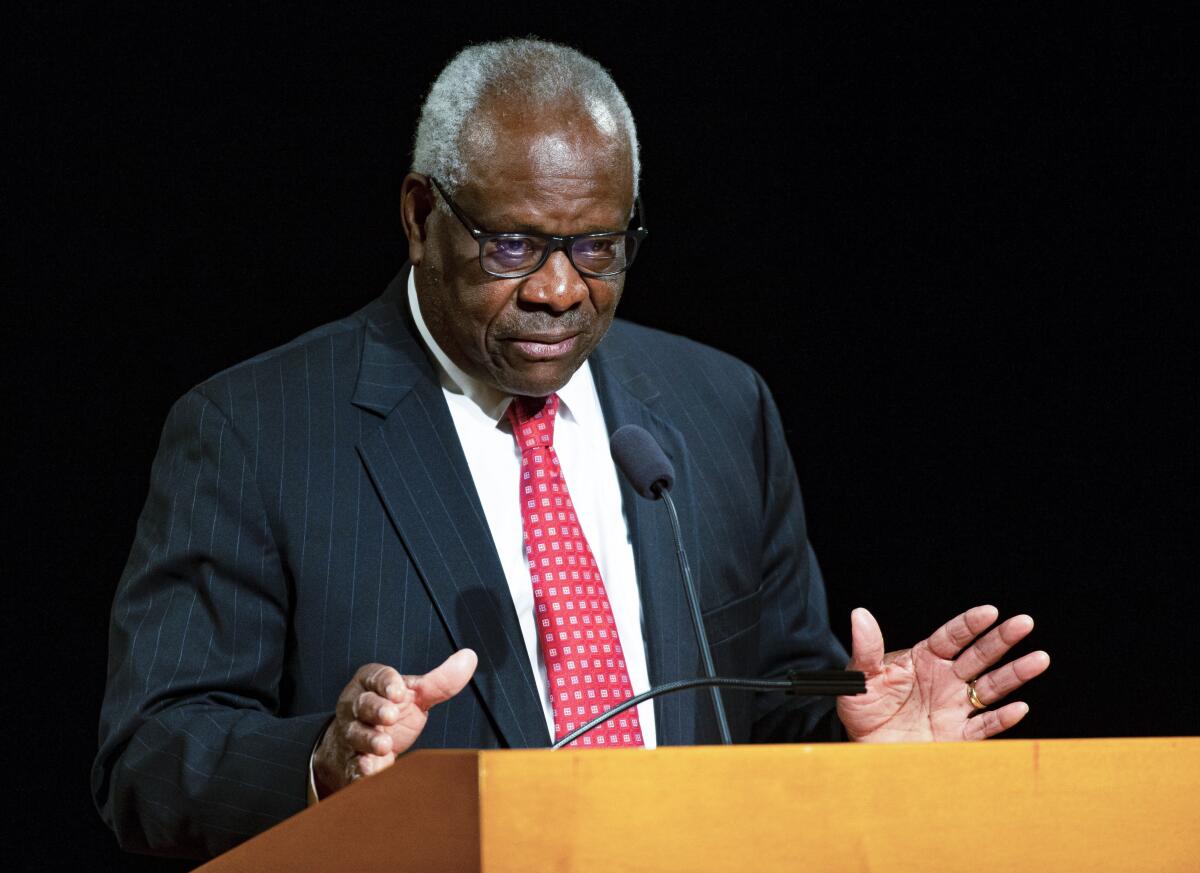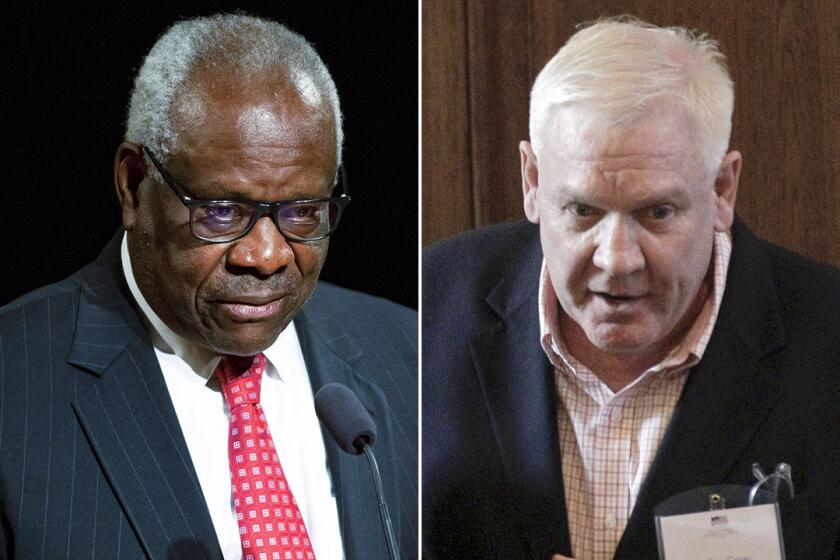Editorial: Supreme Court justices should report lavish trips. Even those with ‘dearest friends’

In an account that reads like an installment of “Lifestyles of the Rich and Famous,” ProPublica recently reported that Supreme Court Justice Clarence Thomas accepted luxury trips over more than two decades from Harlan Crow, a Texas real estate developer and prominent Republican donor. Among the excursions was a 2019 vacation in which Thomas and his wife enjoyed “nine days of island-hopping” off Indonesia aboard a 162-foot yacht. Thomas didn’t report the trips on his annual financial disclosure forms.
On Monday, Democrats on the Senate Judiciary Committee wrote to Chief Justice John G. Roberts Jr. to demand that he investigate “how such conduct could take place at the court under your watch” and “take all needed action to prevent further misconduct.” The senators also promised to hold a hearing on ethical standards at the court.
Neither Congress nor the public should have had to depend on investigative journalists to learn of the hospitality bestowed upon Thomas by Crow. Fortunately, Thomas and his colleagues must now comply with new disclosure obligations under the 1978 Ethics in Government Act. Under guidance issued in January by the Judicial Conference of the United States, judges and justices must disclose when they travel on private jets or stay at private resorts that operate commercially or are owned by a business “entity” rather than an individual or family.
All judges must adhere to ethical standards. Even Supreme Court justices.
In a statement reacting to ProPublica’s report, Thomas said that he intended to follow this “new guidance.” But he seemed to minimize any concern about his conduct, noting that Crow and his wife were among the “dearest friends” of Thomas and his wife, Virginia. “As friends do, we have joined them on a number of family trips during the more than quarter century we have known them,” he added.
Even so, Crow is very active in conservative political circles, including sitting on the board of the American Enterprise Institute, a public policy think tank, and only became a friend shortly after Thomas was nominated to the Supreme Court. Thomas must have known how it would look to the average American that he was taking luxury trips funded by Crow.
Thomas also referred vaguely to advice he had received from “my colleagues and others in the judiciary” that led him to the conclusion that “this sort of personal hospitality from close personal friends, who did not have business before the court, was not reportable.” That is a puzzling comment given that Thomas did report a 1997 trip on Crow’s personal plane to Northern California where Thomas was Crow’s guest at the Bohemian Grove, which holds all-male retreats for government and business leaders.
Even if Thomas is more forthcoming going forward — with tighter disclosure standards by the Judicial Conference — more must be done to safeguard the court’s credibility. Justices need to be held to the same standards of disclosure as members of Congress.
Repairing trust in the Supreme Court will require a mandatory ethics code and an end to life terms for justices. No one should hold that much power for that long.
Fix the Court, a reform group, suggests that justices should be required to file a report within 30 days of their return from a trip funded by others, listing the names of other guests and the dollar amounts for every mode of transportation taken, as well as lodging and meals. That seems reasonable. The group also has an intriguing proposal that an ethics office be established for the court that would pre-clear sponsored travel for justices, even if a personal friend was picking up the tab.
It’s also vital that Supreme Court justices be bound by a code of conduct as lower-court judges are. So far the court hasn’t acted to establish such a code, despite a comment Justice Elena Kagan made in 2019 that Roberts was studying the question. If the court continues to stall, Congress must act.
Thomas is a lightning rod for criticism from Democrats, not only because of questions about his conduct and the activities of his wife, who was involved in efforts to help Donald Trump overturn his 2020 election defeat, but also because of his conservative jurisprudence.
But judicial ethics shouldn’t be a partisan issue. All justices of the Supreme Court, regardless of ideology or the president who appointed them, should be held to the highest ethical standards. And all justices should be aware of the appearance problem created when they accept generous gifts from political actors, even if they are “dearest friends.”
More to Read
A cure for the common opinion
Get thought-provoking perspectives with our weekly newsletter.
You may occasionally receive promotional content from the Los Angeles Times.












